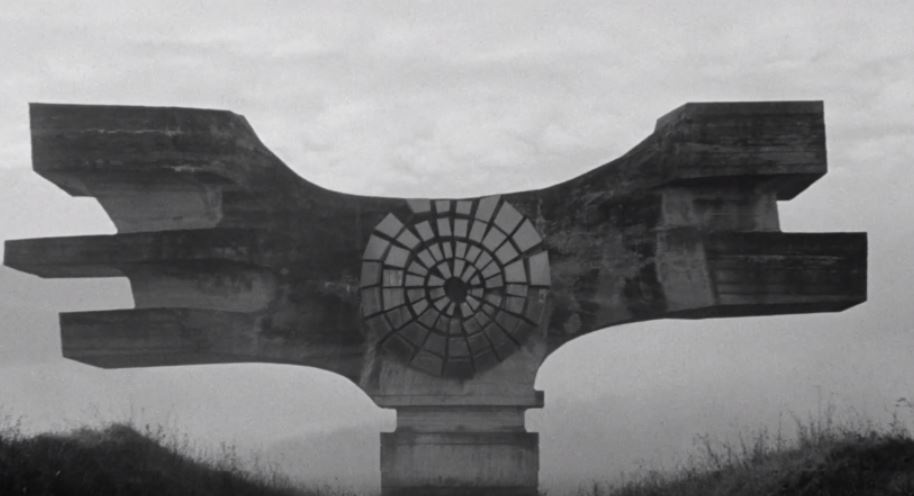We find ourselves filled, in spite of everything, with a triumphant love of our fate.
Olaf Stapledon
The Last and First Men, a film based on the book by Olaf Stapledon, is the sort of brooding, grey on black meditation on human existence that plunges me into silence. The good silence of death and resurrection, rather than the drowning silence of depression.
The film is sparsely narrated by Tilda Swinton using passages from Stapledon’s book that both accentuate and give space as the camera lingers over images of abandoned, abstract war memorials from the former Yugoslav republic. Layered on top of that is a brooding, organic yet otherworldly soundtrack by Jóhannsson.
The film explores zones of decay and ruin where great tragedies have occurred—places charged with symbolism. We sense a spectral presence, an entity that is attempting to communicate with us.
Jóhann Jóhannsson
There’s not much overt story to the film. Set 2,000 million years in the future, a future species of human reaches back through time, ostensibly for our help, but it’s never clear to me what help they want. Instead, they tell of humanity’s failed attempt to escape destruction from an exploding star. There’s no hope, yet they are no without hope.
Last and First Men is an embodiment of “mono no aware,” a Japanese term for the awareness of impermanence and the transience of things. The feeling throughout the film is both a gentle sadness about the individual (in this case humanity) as well as knowing this transience permeates all life.
The end, however you want to envision it, points right back at us.

- Check out this edition of Last and First Men by Olaf Stapledon combined with another of his novels I enjoyed, Star Maker.
- For a non-Wikipedia biography of Olaf Stapledon, see this page from the University of Liverpool where he lectured.
- Jóhann Jóhannsson passed away in 2018, but you can still learn about and purchase the Icelandic composer’s work at Johannjohannsson.com.
- As of May 2022, the only U.S. source for viewing the film is Metrograph.com.
- In the UK, try the British Film Institute.
- For an erudite discussion of the film, check out the Weird Studies podcast “The Music of the Spheres: On Jóhann Jóhannsson’s ‘Last and First Men.'”
